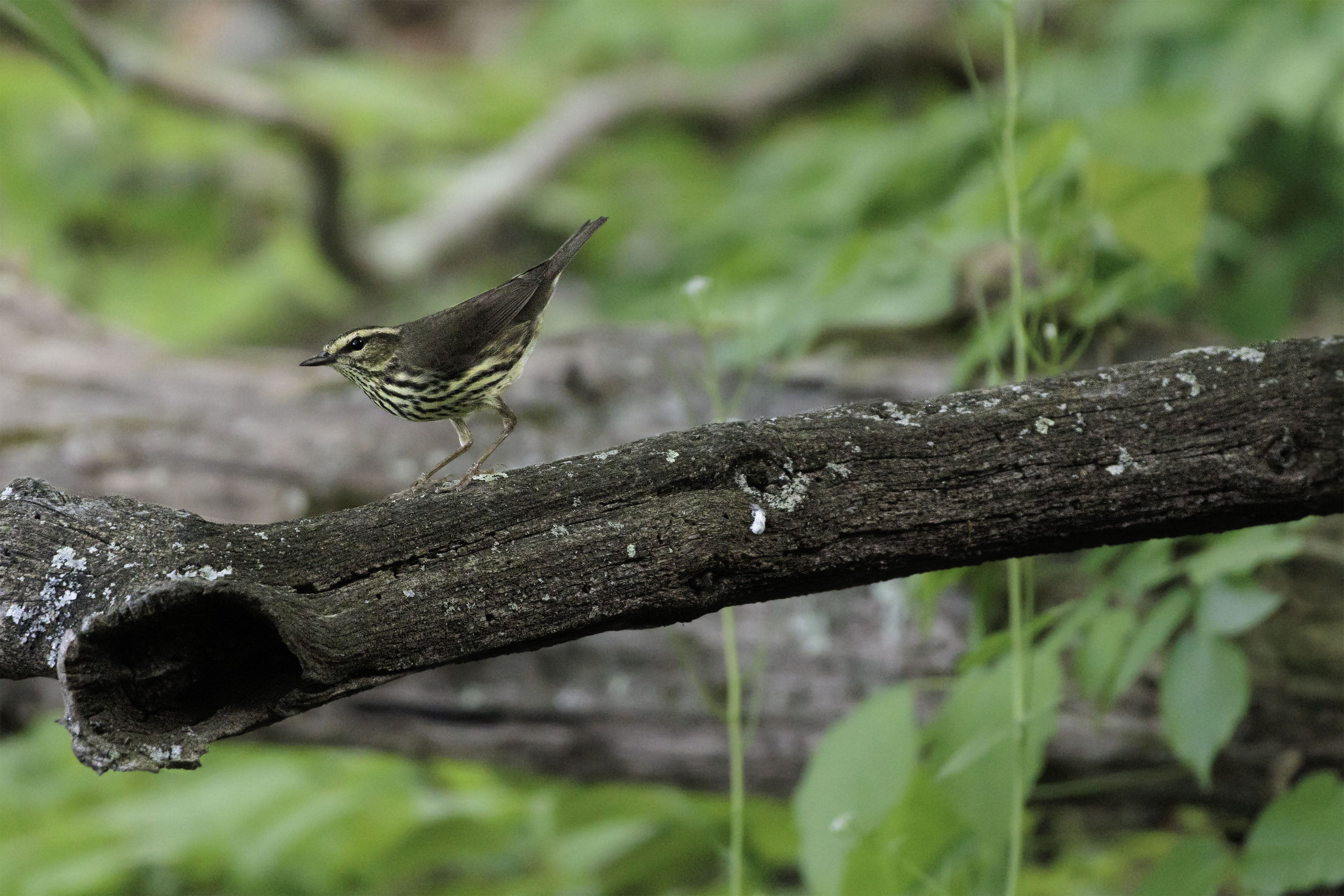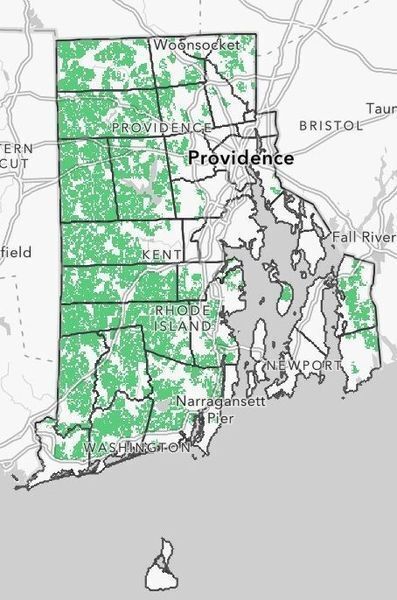
Published January 5, 2024
2024 is Here: An Update on Solar Siting Reform
By URI Energy Fellow Serena Russell and Audubon Director of Advocacy Phoenix Wheeler
In 2023, RI’s General Assembly passed the state’s first-ever solar siting legislation (H5853 & S0684). Before this law, two state programs, called Net Metering and Renewable Energy Growth, inadvertently incentivized developers to chop down forests to put up solar panels. Solar became one of the leading causes of deforestation in Rhode Island, in part because of these incentives. The solar siting legislation guides renewable energy development towards preferred sites such as rooftops, parking lots and closed landfills, as opposed to green space. Solar development in core forests (continuous forested land of 250 acres or greater) are no longer eligible for state incentives. Enactment of this legislation is one of the first steps to aligning forest conservation with renewable energy development.
The RI Department of Environmental Management (DEM) determines solar project eligibility, based on whether the project is located within core forests or not. Since early 2023, DEM has been working with the RI Office of Energy Resources (OER) and utility company RI Energy to collaboratively produce a draft guidance document, which will provide information on the eligibility of projects and the review process. This guidance document describes the process for determining whether a project is within a core forest, and therefore eligible or not for state incentives. First, developers contact DEM with a proposal, and then DEM reviews the proposal using the GIS map of core forests, conducting a site visit if necessary. Next, DEM issues a determination letter to the developer which they would include in their application to RI Energy.

Map of Core Forests in RI. Core Forests are essential corridors for birds and other wildlife.
Recently, draft guidance was released for the public to comment on. The Audubon Society of Rhode Island submitted comments to DEM, asking for several changes, including:
- that DEM change certain words and phrases that watered down or made vague the enforcement of the law;
- the addition of language that would prevent developers from acting prior to their application getting approved;
- and the addition of a wildlife inventory as part of the application process by developers to protect biodiversity.
DEM will review these comments and may choose to incorporate some or all of them. The final guidance from DEM should be released sometime early in 2024.
OER Municipal Solar Assistance
It’s important to note that in previous years RI OER has published guidance for municipalities concerning solar siting as well. In fact, an entire section on their website is dedicated to Solar Guidance and Model Ordinance Development for Municipalities. Throughout 2018, collaboration with stakeholders and public outreach meetings helped to inform the development of two prominent reports related to Solar Siting Guidance: Municipal Comprehensive Plans and Model Ordinances/Taxation, as well as an informational powerpoint for cities, towns, and interested stakeholders.
Since then, development has significantly escalated, presenting challenges for municipalities trying to find solutions. Renewable energy siting is a multifaceted issue, making it essential that municipalities are informed on what they can do to further renewable energy development while protecting the most important forest areas. Guidance from OER and DEM can greatly help. Furthermore, the solar siting reform law provides a guide for municipalities, about where solar is most effective and sustainable (preferred and previously disturbed sites), versus where solar is detrimental (core forests). The new law also provides a statewide definition of core forests, which increases uniformity throughout the state, benefitting policy-makers and developers overall. Adjusting municipal ordinances to reflect the newly passed law works towards these goals.
You can take action in several ways:
- Sign up for the Eagle Eye advocacy newsletter for updates on how to take action
- Set-up advocacy trainings from the Audubon Society of RI in your local community
- Find out who your elected officials are, get to know them, and tell them you care about the environment
Please contact Audubon Director of Advocacy Phoenix Wheeler for more information and to get involved.
Northern Waterthrush Image by Malcom Moniz.

















